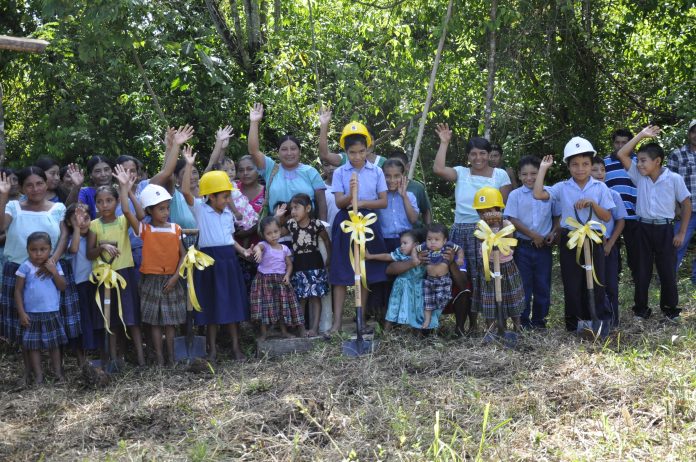The Caribbean Development Bank has provided a grant of US$333,488 to fund a new water supply system in Conejo, Belize. Officials from the Government of Belize and the Belize Social Investment Fund, which will implement the project, joined villagers at a ceremony to begin construction.
“Belize is on target to meet its national goal of 100 percent access to clean water,” William Lamb Jr., Executive Director, Belize Social Investment Fund, told The Source. “However, the current demand for this precious commodity poses a challenge as new communities are starting to develop without adequate planning. There is also the issue with existing water systems not functioning efficiently and effectively. This is linked to the lack of both the management capacity of village water boards and the self-sufficiency of the water systems. These deficiencies hinder the long-term sustainability of these systems.”
When the Conejo New Rudimentary Water Subproject is completed, it will provide 300 villagers with the continuous supply of reliable and safe drinking water they need for daily living. Getting enough water for drinking, washing, bathing and cooking will no longer be an inconvenience. With the new water supply system, men, women and children who live in the village will also be less vulnerable to waterborne, foodborne and vector-borne diseases.
The water supply system will run with clean energy from the sun. A solar panel array will provide electricity to the pump house and electronic controls. A submersible solar water pump and chlorinator will also form part of the system.
“This sub-project will benefit all persons in the Conejo Creek Village, in particular, women and children who are mostly tasked with the burden of collecting water for daily domestic use,” said Darran Newman, Portfolio Manager, Basic Needs Trust Fund, Caribbean Development Bank. “All households within the communities will have access to safe drinking water throughout the year, and within 15 minutes of walking.”
Villagers will get access to water through nearly 4.27 kilometres of transmission and distribution pipelines, which will be supplied and installed through the subproject. A water tank will be constructed at the highest point in the village and water will be gravity fed to householders in the community.
Under the subproject, all villagers will have access to training in public health education, in areas such as food and nutrition, personal hygiene, and water and sanitation.









